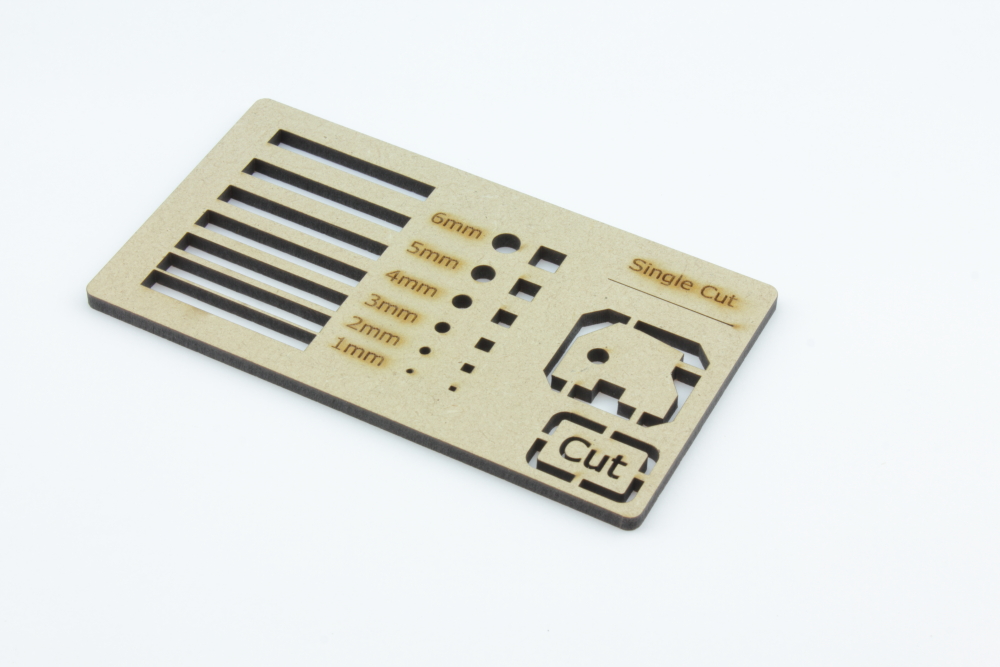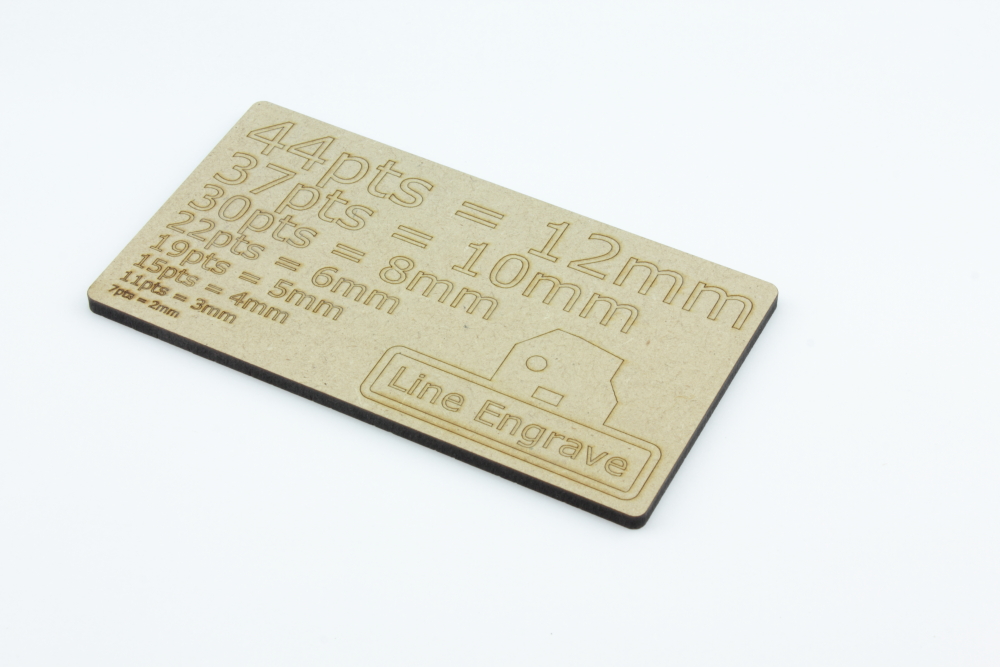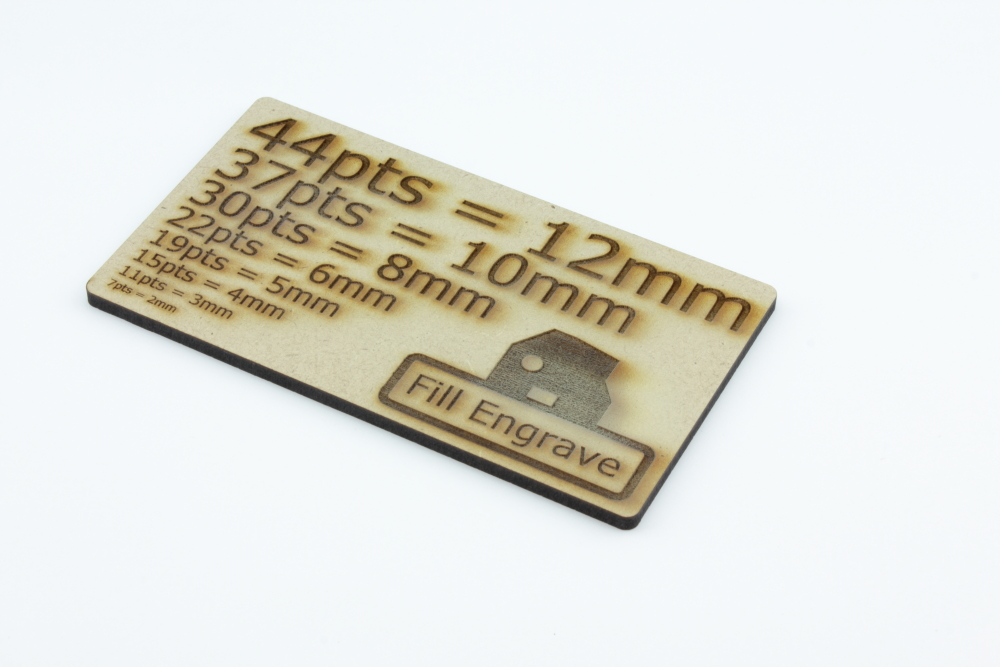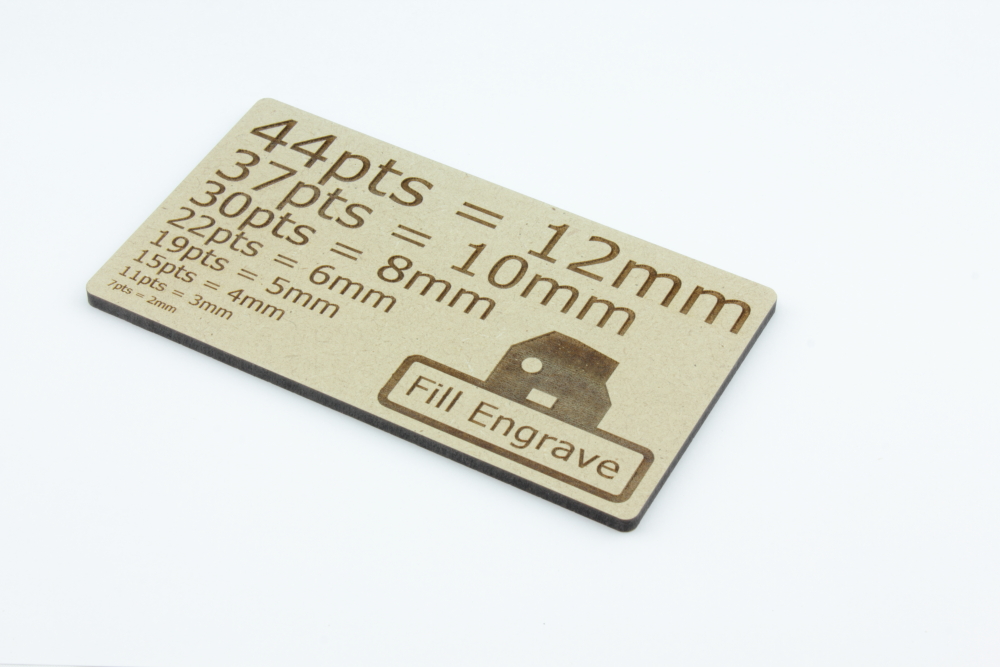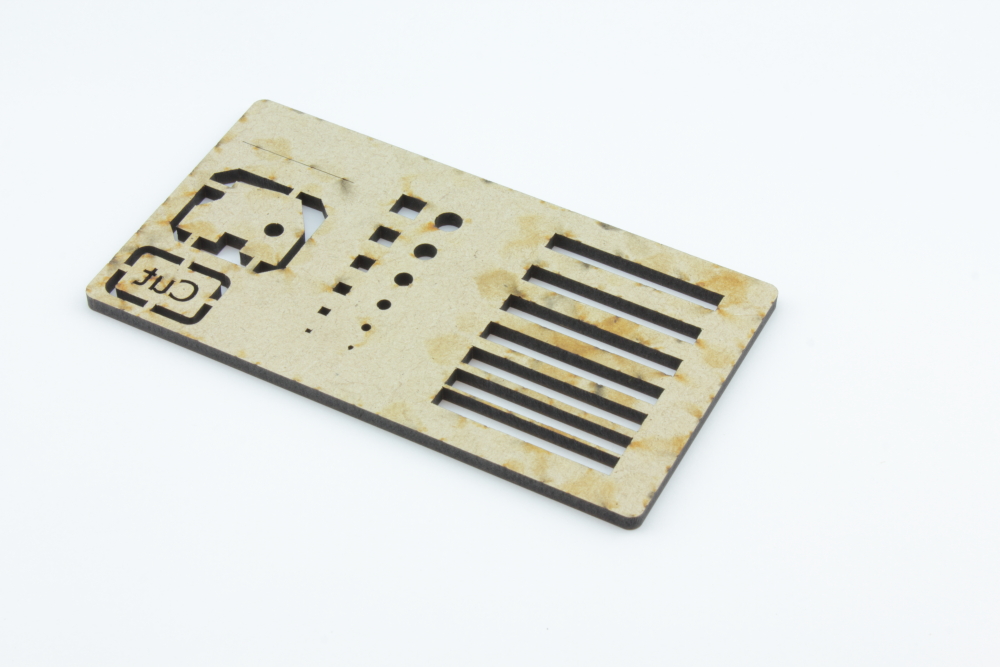Medium-density fiberboard (MDF) is a wooden fiber board with lots of nice properties.
MDF is commonly used when manufacturing furniture, doors, speaker boxes and anything else that can benefit from its good mechanical properties, low price and smooth surface. When laser cutting MDF you get a nice black edge and strong parts that can be easily glued together with regular wood working glue. Our customers frequently use MDF for the construction of models, fixtures, templates and decorations.
Available thicknesses and colors
- 10mm - Natural
- 6mm - Natural
- 4mm - Natural
- 3mm - Natural
- 2mm - Natural (note that the 2mm variant differs in thickness from 2.0-2.4mm)
Cut width
~ 0.08-0.2mm
In MDF you usually don't need to compensate for the cut width. Just draw your parts with zero play and then let the laser beams width remove just a tiny bit more material to make your parts easier to assemble.
Sheet Size
- 10mm - 1200mm * 800mm
- 6mm - 1200mm * 800mm
- 4mm - 1200mm * 800mm
- 3mm - 1200mm * 800mm
- 2mm - 1200mm * 800mm
How does it look once laser cut?
Above before cleaning, below after cleaning.
Below: Flashbacks on the backside of the parts.
Hints from TechStation!
When bonding pieces together you can create incredibly strong joints by using a "tab" construction, where the parts are mechanically locked together. This also has the benefit of making the parts easy to align and assemble. Add glue and you are all set!
Instead of using "regular" wood working glue, we recommend that you use Alipatic Resin. This is due to two factors, it dries much faster and creates even stronger bonds.
When working with prototypes and test parts it is even possible place thread directly in the material. Very carefully use a thread tap to create your thread in a pre drilled hole. The thread will not be the strongest out there but if you are a little careful its usually enough to assemble parts together or for example try them out on larger constructions to see if you got that pesky bolt pattern correct.
Benefits:
+ Cheap
+ Good mechanical properties
+ Simple to glue
+ Smooth surface
+ Good tolerances on the raw material
+ ESD suitable (a customer has informed us that this material passed there ESD tests and they now frequently use MDF in simple fixtures and assembly aids)
Drawbacks:
- Doesn't like water (to cope with water, all exposed surfaces have to be covered with some water tight material to protect the MDF)
- Has to be pre-drilled
Mechanical properties:
- Density: 600-800 kg/m3
